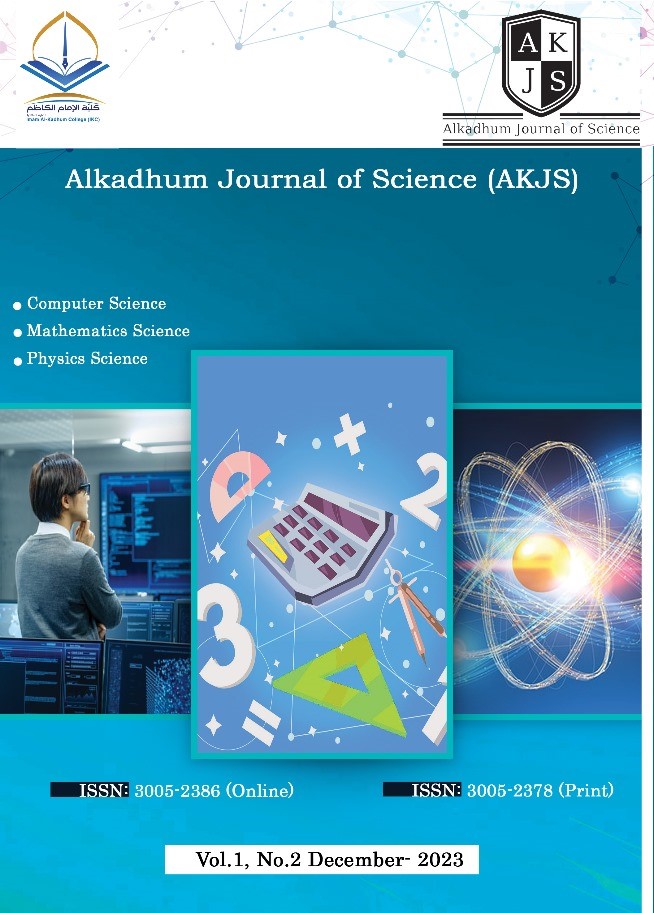Enhancement the Security by Creating Ontology-Based Trust Management Using Semantic Web Tools
Main Article Content
Abstract
The most traditional policy models which do not consider dynamic nature of distribute systems and the limitation in addressing issues like adaptability, extensibility, and reasoning over security policies. The main cause of the flexibility and scalability issues in the environments of the Internet and dynamic networks is that there is no central control over the environments, and users are not predetermined. As a result, security and trust issues become critical in the various systems; enhancing the security of these environments would require adding trust to the existing security infrastructures. Few trust models have taken into account the semantic relationship for pervasive elements, despite the fact that numerous models have been proposed to address trust issues in dynamic environments; especially those who related to trust categories. In our work, we solve issues resulted from security and tracking the dynamics of participating communication devices in dynamic distributed networks. Through using ontology for trust management which it is define vocabularies used to described and represented an area of knowledge. For representation, we used semantic web's tools to represent the domain of the dynamic environment and we improv that the reasoning succusses in inference the trusted device and user exactly where we do query.
Downloads
Article Details
References
Xue, Xingsi, and Qihan Huang. "Generative adversarial learning for optimizing ontology alignment." Expert Systems 40.4 (2023): e12936..
Eriksson, Owen, and Pär J. Ågerfalk. "Speaking things into existence: Ontological foundations of identity representation and management." Information Systems Journal 32.1 (2022): 33-60.
Wermund, Rahul. Privacy-Aware and Reliable Complex Event Processing on the Internet of Things-Trust-Based and Flexible Execution of Event Processing Operators in Dynamic Distributed Environments. Diss. Technische Universität, 2018.
Li, Huaizhi, and Mukesh Singhal. "Trust management in distributed systems." Computer 40.2 (2007): 45-53.
Gawich, Mariam. "Knowledge Representation: A Comparative Study." Internet of Things—Applications and Future. Springer, Singapore, 2020. 365-375.
Karthik, N., and V. S. Ananthanarayana. "An ontology-based trust framework for sensor-driven pervasive environment." 2017 Asia Modelling Symposium (AMS). IEEE, 2017.
Noy, Natalya F., and Deborah L. McGuinness. "Ontology development 101: A guide to creating your first ontology." (2001).
Zeng, Marcia Lei, and Philipp Mayr. "Knowledge Organization Systems (KOS) in the Semantic Web: a multi-dimensional review. "International Journal on Digital Libraries 20.3 (2019): 209-230.
Kravari, Kalliopi, and Nick Bassiliades. "Ordain: An ontology for trust management in the internet of things." OTM Confederated International Conferences" On the Move to Meaningful Internet Systems". Springer, Cham, 2017.
Kammoun, Nadia, et al. "A New SDN Architecture Based on Trust Management and Access Control for IoT." Workshops of the International Conference on Advanced Information Networking and Applications. Springer, Cham, 2020
Mousa , Afaf, Jamal Bentahar, and Omar Alam. “Dependency Network-based Trust Management for Context-Aware Web Services.” Procedia Computer Science 151 (2019): 583-590.
Esposito, Christian, et al. "Trust management for distributed heterogeneous systems by using linguistic term sets and hierarchies, aggregation operators and mechanism design." Future Generation Computer Systems 74 (2017): 325-336.
Karuna, Prakruthi, Hemant Purohit, and Vivian Motti. ": User's Trust Profile Ontology-Modeling trust towards Online Health Information Sources." arXiv preprint arXiv:1901.01276 (2019).
Bellavista, Paolo, and A. Montanari. "Context awareness for adaptive access control management in IoT environments." Secur. Priv. Cyber-Phys. Syst.: Found. Princ. Appl 2.5 (2017): 157-178

